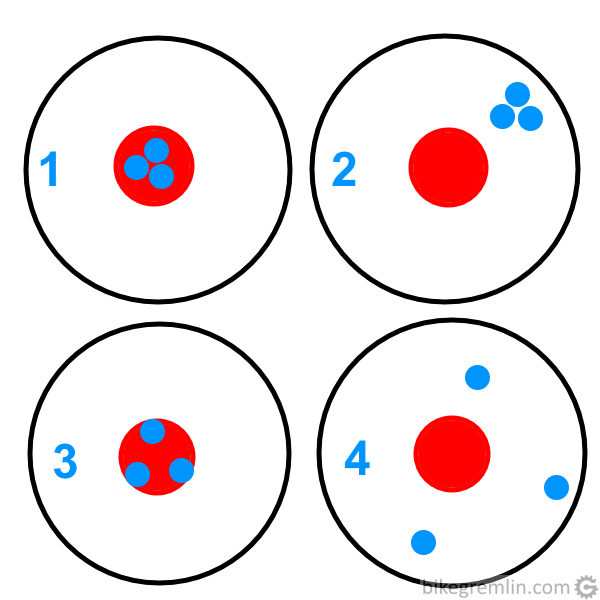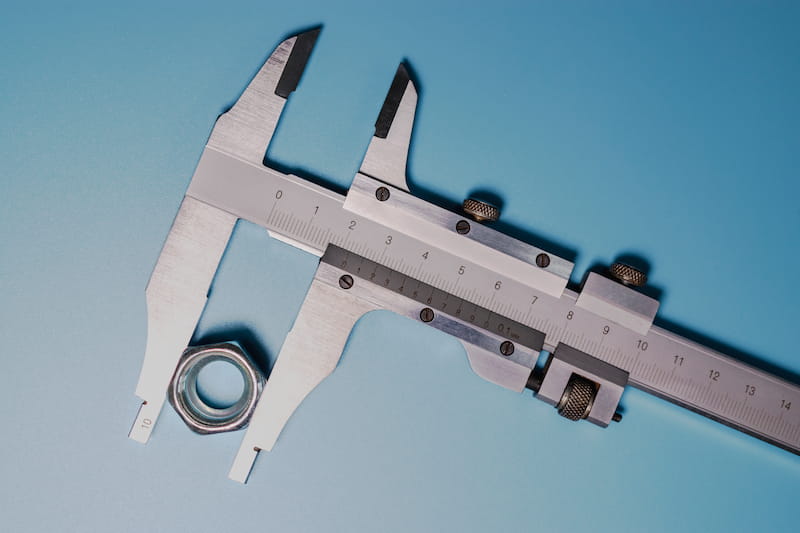In every day speech, terms “accurate” and “precise” are used interchangeably, as synonyms. In mechanics, especially in measurement, the meaning of these two terms differs. Since I am and will be using these terms, it would be wise to clearly define them.
Before giving any (boring) definitions, I think a picture will speak a lot more clearly:

2: Inaccurate and precise
3: Accurate and imprecise
4: Inaccurate and imprecise
Definitions, before an explanation in “plain English”:
- Accuracy: how close is the value gained by measuring to the real value.
- Precision: how close are the results of each repeated measurement (of the same object) close to each other.
Let us take weight (mass) measurement for an example. Say we are measuring a 70 kg heavy cyclist, using 4 different scales and repeating the measurement 3 times in a row with each scale. Measurement results are shown in table below:
| Scale | 1st measurement | 2nd measurement | 3rd measurement |
| 1 | 70 | 70 | 70 |
| 2 | 68 | 68 | 68 |
| 3 | 69 | 71 | 70 |
| 4 | 64 | 66 | 65 |
- Scale 1 is both accurate and precise.
- Scale 2 is very precise, but not accurate.
- Scale 3 is pretty accurate, but not very precise.
- Scale 4 is neither accurate, nor precise.
As can be seen in this explanation, terms accurate and precise are connected and somewhat similar, but not exactly the same.
A video demonstration of the pros and cons of digital vs analogue gauges, how to use calipers for precise measurement, and what the difference between accurate and precise is:
Digital VS Analogue gauge
Last updated:
Originally published:

